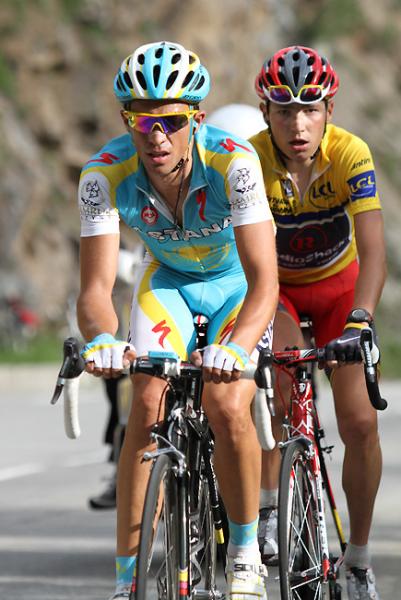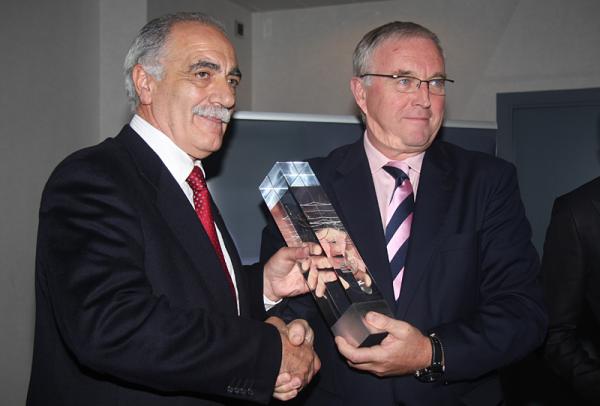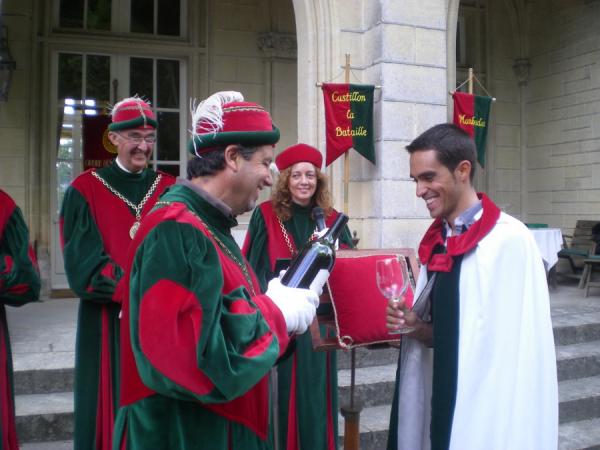Spanish verdict on Contador case could take over three months
Contador hires Pellizotti's defence lawyer



Spanish Cycling Federation (RFEC) president Juan Carlos Castaño has said that a verdict n the Alberto Contador case will not be reached within two months, while RFEC legal counsel Luis Sanz has warned that the process could take over three months.
Castaño said that the sheer volume of documentation on the matter that the RFEC’s competition committee has received from the UCI (International Cycling Union) means that the time frame of the case is likely to be extended. He explained that the file sent by the UCI is “very large, much larger than any other.”
“There are many reports from various official bodies and even some private reports,” Castaño told AS. “Most of them are in English, so it is very likely that the competition committee will request an official translation.”
Castaño was quoted on Monday as saying that he hoped that Contador would be cleared, but the case is now in the hands of the RFEC’s four-man competition committee, led by Carmen Victoria Lopez. The competition committee was due to hold its first meeting to review the case on Wednesday.
Spanish federation legal counsel Sanz explained that “the case could extend beyond three months” and that “the time it takes for the athlete to present and confirm his evidence cannot be restricted.”
However, such a lengthy process appears to be in contravention of UCI anti-doping regulations, even though AS says that under Spanish anti-doping law the permitted period is three months.
Article 280 of the UCI regulations states that “proceedings before the hearing panel of the License-Holder’s National Federation must be completed within 1 (one) month from the time limit set for the dispatch of the summons.” For each week’s delay thereafter, the Spanish federation could incur a fine of CHF 5000.
The latest race content, interviews, features, reviews and expert buying guides, direct to your inbox!
The UCI requested that the Spanish federation open disciplinary hearings against Contador on Monday and the formal summons had to be issued to the rider within two days (as per article 251). In theory, the Spanish federation now has one month to reach a verdict.
Article 281 states that if the hearing’s completion is delayed beyond three months, the UCI may bring the case directly before an individual arbitrator from the Court of Arbitration for Sport (CAS).
Any verdict could be subject to an appeal by either Contador, the UCI or WADA to the CAS, meaning that a final decision on whether Contador is to be banned could be delayed even further.
An unnamed official has told El Pais that the RFEC is caught between a rock and a hard place as it deliberates on the matter, and will face criticism regardless of its decision.
“If the Spanish federation sanctions Contador, we will have trouble at home,” he said. “If he is acquitted, there will be a quarrel with the UCI and WADA, who will again remind us that here we are too sympathetic to doping and that we don’t want to fight it. And these pressures are not the best guarantee of a truly fair trial.”
Taminelli to lead Contador's defence
El Pais also reports that Contador has hired Swiss lawyer Rocco Taminelli to lead his defence in the case. Taminelli represented Franco Pellizotti in his recent successful appeal against a possible suspension relating to irregularities in his biological passport.
Contador returned an adverse analytical finding for Clenbuterol on July 21 during the Tour de France. He has claimed that the traces of Clenbuterol found in his urine were caused by eating contaminated meat.

Barry Ryan was Head of Features at Cyclingnews. He has covered professional cycling since 2010, reporting from the Tour de France, Giro d’Italia and events from Argentina to Japan. His writing has appeared in The Independent, Procycling and Cycling Plus. He is the author of The Ascent: Sean Kelly, Stephen Roche and the Rise of Irish Cycling’s Golden Generation, published by Gill Books.